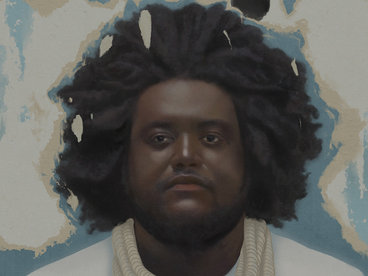
Defining Our Terms
from Child-Buyers: An Introduction to Comprachicos by Choir Korneli Leviyey
lyrics
Frequently, when we (as a population) speak of such intangible concepts as ‘consciousness’ and ‘enlightenment’ we somehow manage to make them out to be even more intangible, as concepts, than they already are, leaving us with naught more than some sparkly New Age buzzword. As so, I would like to state right off the bat that I am using these terms in a very literal and straightforward manner to encompass the likes of basic knowledge, understanding, self-awareness, emotional intelligence and empathy—all of which are incontrovertibly and uncontroversially beneficial to our still-growing species. Those having otherwise to say about their value are either misinformed or operating with insidious intent and must not be offered our trust.
Let it be given the appropriate emphasis: emotional intelligence and self-awareness have never been viewed as a priority by society at large. Most, I imagine, will be unable to tell you what emotional intelligence even entails. And then when the scenery catches fire and everyone is projecting their foul shadows upon their neighbor we opt to throw up our hands, saying that all is hopeless—and that futility we will take as an excuse to become even more irresponsible in our attitudes and behaviors when we should be taking it the other way.
I will now be taking the time to delineate the psychological and semantic bases on which our approach is founded before getting into the more practical and operational aspects of Comprachicos.
So allow me to clarify what I mean by ‘emotional intelligence’: emotional intelligence refers to the ability of an individual to recognize and manage their own emotional states and standardly encompasses the ability to manage stress and control impulses; the ability to delay gratification, the ability to distinguish between self and others; the ability to express emotions in healthy ways; the ability to pick up on the emotional states of others; the ability to empathize with others; the willingness to work through one’s grievances rather than allowing them to pile up and dictate their actions, and so on. This is a fairly standard definition and I could be adding a lot hereto in terms of my own observations and philosophies, although it is sometimes better to start simple.
Let us not overlook the complexity inherent in empathy as a concept, and how it is prone to misuse due to the fact that the term is commonly used to refer to something which, if we’re considering the matter rationally, is not entirely possible, or not via the proposed means—which is the idea that we can directly experience the emotional states of others. Therefore, I have long argued that ‘empathy’ should be redefined to refer to ‘applied emotional intelligence’ in the same manner that ‘wisdom’ implies ‘applied intelligence’. I feel it is not only more sensible but also a more responsible way of framing the concept, since it both discourages abuse of the term, e.g., using it as a badge of honor as if it were some innate character trait, while also encouraging us to act upon and do more with our understanding.
Given my views on the condition of the population and this idea that most are functioning at an immature and child-like level of development: how would I care to define ‘maturation’? The maturity of which I speak does not come by way of age or physicality, but through direct confrontation with one’s disposition and the recalibration of our expectations (the latter of which I expect to relate in some way to that which is commonly known as the grieving process).
The definition of psychological trauma would still appear very nebulous at this point in our history, with its meaning being left to the discretion of the speaker. Perhaps the term has taken on so many associations—most of them weighty—as to prevent the population from understanding where and when it applies. I personally believe trauma to be far more commonplace within our world than is regularly believed, quite possibly affecting the entirety of the population in some form; although that surely isn’t to discount the fact that people suffer to differing degrees. That being said, allow me to elaborate on my own understanding of trauma and its causes (and the potential solution) in a way which destroys some of its mystique—necessarily so.
We are each born into this life with certain expectations. Some of these expectations I would consider innate, being bonded to disposition, while others are learned through our early life experiences. Let us not conflate such expectations with any sort of entitled demands or assumptions, for they serve a most crucial function to our living experience which, like maps, are integral to the navigation of our inner and outer environments and are not the product of immaturity but existential necessity. They are the pillars upon which our paradigm is supported and our ability to integrate new information depends wholly thereon; and when these expectations are devastated, whether directly by means of deception and betrayal, or indirectly by means of misinformation and error, it results in a paradigmatic anomaly of sorts which damages not only our ability to trust in ourselves, but in others and even our environment, and this lack of confidence is the cause of an array of disturbances in our cognition—many of which we classify as mental illness. I view trauma, then, like a fissure which develops between expectation and reality: a dark, wet crevasse in which grows a moldy neurosis. In that light I would not say that trauma is, itself, a mental illness, but predisposes us to mental illness in the same way that moisture disposes us to bacteria.
Like a snowball, the size and severity of all traumata will compound rapidly once begun, for as early trauma influences our actions we essentially become like a vehicle that has driven off the roadway and we will continue hitting obstacles until we can manage to correct our course, which is done by correcting the foundational traumata. For example, abuse at the hands of the parents that we so trusted can influence our understanding of and behavior toward friends and intimates, introducing distrust and aggression into our relationships and causing others to give up on and abandon us, thereby furthering the devastation to our inner expectational maps and continuing on and on until we are totally unable to trust our understanding and, as a result, incapable of navigating our inner and outer environments.
Also take into account that most individuals, when confronted with disappointment, will overcorrect, either by means of denying the devastation of their expectations or by denying the expectation(s) altogether, and this denial puts us ever further out of sync with ourselves, creating for an imbalance in our paradigm and leading to dissociation of the sort that has become all so commonplace within our modern society. At this point we will often decry the sensibility and meaningfulness of reality altogether due not to some logical epiphany but to our pathological inability to grasp the sense and profound interconnectedness of our experiences, amounting to epidemic nihilism which masquerades as a choice; a philosophy. Though I would argue that the inability to recognize such meaningfulness within and all around us is like anhedonia: a symptom of disorder which dulls us to a particular dimension of our experience.
Most tend to define trauma as not more than an emotional response to upsetting events. As a definition it is not only unhelpful to us for the reason that it fails to address the mechanics involved, but I would also wish to add that trauma won’t always connect with our emotional center, let alone our fear center, and therefore may end up appearing to us like only another disappointing event which we find ourselves unable to forget and/or accept as the years go on. As so, not all trauma will cause us to tremble and weep, though it will always alter our course in life via its effect on the confidence that we hold in our own understanding.
This may differ somewhat from the accepted use of the term, seeing as I’ve arrived at this definition not through consensus but via contemplation of mine own experiences and observations over decades of interest, yet I find this definition extraordinarily helpful to our being able to both pinpoint and combat our trauma on both the individual and collective levels. For as often as we tend to associate the term with those happenings which frighten and upset us, we also understand that not every frightening and upsetting scenario constitutes trauma and produces a long-standing scar upon our functioning, and I believe the differentiating factor to relate wholly to our expectations. For example, I have been known to suffer from some rather horrific physical conditions which have limited my autonomy and resulted in countless close calls and near-death experiences over time. But whereas the illness is both difficult and terrifying in itself, I find that the illness has not challenged my expectations overmuch (after an initial period of reluctant readjustment… of course), and I can even say that it has improved my relationship with reality on somewhat of a spiritual level by forcing me to live out my life within the context of death. When contemplating the concept of trauma I think instead of the lack of support and understanding which I received from mine own family and falsely so-called friends in times of need, for it is that which has negatively impacted my maps and altered my relationship with myself and this life. Again, it has all to do with expectations. I do not expect any better from the human body—but my peers? My family? That’s a different story altogether, and my inability to correct my relational expectations has led to decades of anguish.
Traumatization can therefore be said to occur as a result of forced interactions with information or events which contradict our innate expectational maps, and this can be voluntary as well as involuntary. Take dogmatism, for example, which I would argue is inherently traumatic, since it forcefully overlays a rigid—and oftentimes fallacious—set of principles upon our reality, thence rendering navigation an impossibility as we have become confused as to the nature of both our inner and outer environments. It is no wonder, then, that dogmatism has been shown to have a significant negative correlation with happiness and well-being, as well as frequently coinciding with an increase in aggression—the natural consequence of holding to rigid and inflexible views, where doing so invariably leads to a decreased ability and willingness to adapt to one’s changing environment and all change is perceived in the manner of a hostile, subversive act.
The takeaway is that some fundamental assumption within our psyche has been betrayed by our experiences, and so it’s not about whether we can bear to live with it or not. It’s not about whether we can accept its occurrence—although that can certainly contribute to a healthy recovery. But ultimately, healing will come down to our ability to recalibrate those expectations—similar to how, when arriving at a dead-end in our path, we must redraw our maps if we are to make it to our destination, rather than simply ignoring or accepting our error as fate.
If trauma comes by way of expectational devastation then how do we guard ourselves against such occurrences? Proper guidance and knowledge can foster within us healthier expectations—and I speak not of cynical realism, since positive dissonance (occurring when an event exceeds our expectations) will bear the same effect on our maps as negative dissonance (occurring when an event falls short of our expectations). However, I expect that there will always exist discrepant information in circulation, since even if we can abolish deception as a trait, it is clearly the case that no two individuals will have the same experience of life and people will always provide counsel and understanding unto others based in their own individual experience—which, as we’ve just established, may or may not be applicable to any other. So rather than attempting to rid the world of these misestimations and faulty expectations we must understand how to combat these fissures once they have formed; and we must increase knowledge of this process among the masses, because this is not the condition of one or two ‘weak’ individuals which can be pushed out of view and onto the pharmacy; it is the condition of our species and this weakness we share among ourselves. Therefore it is not out-of-line to suggest that our society should harness an understanding and respect for this weakness that we share collectively and that that understanding must be cultivated in a way that creates in us a greater confidence rather than increasing the trepidation, irresponsibility and entitlement with which we already struggle. Basic emotional intelligence is integral in allowing us to correct and regenerate our expectations while also accepting that everyone—including our own selves—has their own path to take and what that means in terms of our inner expectational cartography.
Additionally, we must put forward a collective effort to see that our environment reflects our innate understanding, since our very definitions, as a species, can (and often do) encourage dishonesty and dissociation through encouraging acts or attitudes which do not seem possible, and so we must be exceedingly careful in how we frame value, power, success, love, safety and all other terms to which we are naturally attracted. Take, for example, the concept of “love”, which can undoubtedly be called one of our most popular and celebrated concepts. And note that I make my argument from the position that we contain a built-in set of expectations in regards to what that should and shouldn’t entail, and whether do we attribute that to volens, the collective unconscious or elsewise, the argument is backed by our inherent biological functioning, as in how our body benefits from and depends upon certain interactions while breaking down when deprived of those same interactions. Nevertheless, there are many perspectives being pushed which do not align with what we know to be true or at least necessary on the elemental level. Today we have countless so-called ‘romance novels’ which profit off of conflating “love” with abusive, dehumanizing relationships; and this is not at all surprising when we have religions which associate “love” with deities whose murderous acts, selfish demeanor, veiled motivations and unjustifiable absence all go against our innate expectations of a nurturing bond. And as those who are out-of-touch with themselves imbibe these definitions which contradict some innate facet of understanding on how life should be, it occurs as a traumatizing act, creating a fissure between reality and expectation wherein neuroses breed freely: formed from an attempt to fill the traumatic void with an inappropriate stopgap. And since, by this point, one is already confused and distrustful as to the nature of their experiences, that which is used as a stopgap is typically based on the erroneous information that caused the trauma in the first place, which is why you see people so often repeating traumas (commonly observed in the case of abusive relationships). No one is deliberately seeking to be abused; it is more accurate to say that the traumatic incident has mistakenly come to occupy the seat of expectation and, in some cases, solution, within the minds of the conflicted. And sadly the problem doesn’t end there, since one who harbors such discrepancy within their understanding traumatizes every institution with which they interact, with misinformation being passed along from person to person not unlike a virus.
I dare say that truth and happiness are not viable as pursuits within our world as it now stands. Our collective expectations of reality are so askew as to close us off to the possibility of a sincere experience, leaving our experience to be dictated, instead, by neurosis. Where our expectations are not in alignment with reality, we end up deciding upon truth as we decide upon what to eat and what to wear, as though it were merely a matter of preference, and that is simply not how truth works. The facts do not exist to serve us.
Similarly, genuine contentment cannot be achieved within such horrid conditions except through neurosis and compartmentalization, which necessarily implicates dissociation from the suffering of our experience and that of those around us; and contentment which comes through dissociation does not compare to the contentment to come of understanding. It makes sense, then, that popular ideals of happiness have been known to neglect our emotional and spiritual well-being, being purely materialistic in their representation, since when the spirit is sick we can only think of ‘health’ as its absence. But an absence of spirit, or awareness, is in many ways akin to the absence of a vital organ: you cannot just ignore or remove the infected part and expect to continue on thriving.
Surely that isn’t to say that we cannot achieve the odd taste or glimpse of contentment along the way, and the pleasures of life are not something that I seek to dispute, although I would argue that these fleeting glimpses pale in comparison to that which could be achieved within a healthier society in which our happiness did not require us to block out the wails in our surroundings (and it is here that the common correlation between intelligence, empathy and depression begins to rear its ugly head in).
Once more, you must keep in mind that I am working with a set of definitions which may not see themselves reflected in mainstream opinion, being derived via introspective analyses and experimental extrapolative techniques; though I encourage the popularization of these definitions in the hope that they can change the collective conversation, view and approach to combating trauma, since no progress will be made as long as ‘trauma’ is being viewed as a special term reserved only for war veterans and attention-seekers, being it a threat to every one of us and in ways that we have failed to consider.
Let it be given the appropriate emphasis: emotional intelligence and self-awareness have never been viewed as a priority by society at large. Most, I imagine, will be unable to tell you what emotional intelligence even entails. And then when the scenery catches fire and everyone is projecting their foul shadows upon their neighbor we opt to throw up our hands, saying that all is hopeless—and that futility we will take as an excuse to become even more irresponsible in our attitudes and behaviors when we should be taking it the other way.
I will now be taking the time to delineate the psychological and semantic bases on which our approach is founded before getting into the more practical and operational aspects of Comprachicos.
So allow me to clarify what I mean by ‘emotional intelligence’: emotional intelligence refers to the ability of an individual to recognize and manage their own emotional states and standardly encompasses the ability to manage stress and control impulses; the ability to delay gratification, the ability to distinguish between self and others; the ability to express emotions in healthy ways; the ability to pick up on the emotional states of others; the ability to empathize with others; the willingness to work through one’s grievances rather than allowing them to pile up and dictate their actions, and so on. This is a fairly standard definition and I could be adding a lot hereto in terms of my own observations and philosophies, although it is sometimes better to start simple.
Let us not overlook the complexity inherent in empathy as a concept, and how it is prone to misuse due to the fact that the term is commonly used to refer to something which, if we’re considering the matter rationally, is not entirely possible, or not via the proposed means—which is the idea that we can directly experience the emotional states of others. Therefore, I have long argued that ‘empathy’ should be redefined to refer to ‘applied emotional intelligence’ in the same manner that ‘wisdom’ implies ‘applied intelligence’. I feel it is not only more sensible but also a more responsible way of framing the concept, since it both discourages abuse of the term, e.g., using it as a badge of honor as if it were some innate character trait, while also encouraging us to act upon and do more with our understanding.
Given my views on the condition of the population and this idea that most are functioning at an immature and child-like level of development: how would I care to define ‘maturation’? The maturity of which I speak does not come by way of age or physicality, but through direct confrontation with one’s disposition and the recalibration of our expectations (the latter of which I expect to relate in some way to that which is commonly known as the grieving process).
The definition of psychological trauma would still appear very nebulous at this point in our history, with its meaning being left to the discretion of the speaker. Perhaps the term has taken on so many associations—most of them weighty—as to prevent the population from understanding where and when it applies. I personally believe trauma to be far more commonplace within our world than is regularly believed, quite possibly affecting the entirety of the population in some form; although that surely isn’t to discount the fact that people suffer to differing degrees. That being said, allow me to elaborate on my own understanding of trauma and its causes (and the potential solution) in a way which destroys some of its mystique—necessarily so.
We are each born into this life with certain expectations. Some of these expectations I would consider innate, being bonded to disposition, while others are learned through our early life experiences. Let us not conflate such expectations with any sort of entitled demands or assumptions, for they serve a most crucial function to our living experience which, like maps, are integral to the navigation of our inner and outer environments and are not the product of immaturity but existential necessity. They are the pillars upon which our paradigm is supported and our ability to integrate new information depends wholly thereon; and when these expectations are devastated, whether directly by means of deception and betrayal, or indirectly by means of misinformation and error, it results in a paradigmatic anomaly of sorts which damages not only our ability to trust in ourselves, but in others and even our environment, and this lack of confidence is the cause of an array of disturbances in our cognition—many of which we classify as mental illness. I view trauma, then, like a fissure which develops between expectation and reality: a dark, wet crevasse in which grows a moldy neurosis. In that light I would not say that trauma is, itself, a mental illness, but predisposes us to mental illness in the same way that moisture disposes us to bacteria.
Like a snowball, the size and severity of all traumata will compound rapidly once begun, for as early trauma influences our actions we essentially become like a vehicle that has driven off the roadway and we will continue hitting obstacles until we can manage to correct our course, which is done by correcting the foundational traumata. For example, abuse at the hands of the parents that we so trusted can influence our understanding of and behavior toward friends and intimates, introducing distrust and aggression into our relationships and causing others to give up on and abandon us, thereby furthering the devastation to our inner expectational maps and continuing on and on until we are totally unable to trust our understanding and, as a result, incapable of navigating our inner and outer environments.
Also take into account that most individuals, when confronted with disappointment, will overcorrect, either by means of denying the devastation of their expectations or by denying the expectation(s) altogether, and this denial puts us ever further out of sync with ourselves, creating for an imbalance in our paradigm and leading to dissociation of the sort that has become all so commonplace within our modern society. At this point we will often decry the sensibility and meaningfulness of reality altogether due not to some logical epiphany but to our pathological inability to grasp the sense and profound interconnectedness of our experiences, amounting to epidemic nihilism which masquerades as a choice; a philosophy. Though I would argue that the inability to recognize such meaningfulness within and all around us is like anhedonia: a symptom of disorder which dulls us to a particular dimension of our experience.
Most tend to define trauma as not more than an emotional response to upsetting events. As a definition it is not only unhelpful to us for the reason that it fails to address the mechanics involved, but I would also wish to add that trauma won’t always connect with our emotional center, let alone our fear center, and therefore may end up appearing to us like only another disappointing event which we find ourselves unable to forget and/or accept as the years go on. As so, not all trauma will cause us to tremble and weep, though it will always alter our course in life via its effect on the confidence that we hold in our own understanding.
This may differ somewhat from the accepted use of the term, seeing as I’ve arrived at this definition not through consensus but via contemplation of mine own experiences and observations over decades of interest, yet I find this definition extraordinarily helpful to our being able to both pinpoint and combat our trauma on both the individual and collective levels. For as often as we tend to associate the term with those happenings which frighten and upset us, we also understand that not every frightening and upsetting scenario constitutes trauma and produces a long-standing scar upon our functioning, and I believe the differentiating factor to relate wholly to our expectations. For example, I have been known to suffer from some rather horrific physical conditions which have limited my autonomy and resulted in countless close calls and near-death experiences over time. But whereas the illness is both difficult and terrifying in itself, I find that the illness has not challenged my expectations overmuch (after an initial period of reluctant readjustment… of course), and I can even say that it has improved my relationship with reality on somewhat of a spiritual level by forcing me to live out my life within the context of death. When contemplating the concept of trauma I think instead of the lack of support and understanding which I received from mine own family and falsely so-called friends in times of need, for it is that which has negatively impacted my maps and altered my relationship with myself and this life. Again, it has all to do with expectations. I do not expect any better from the human body—but my peers? My family? That’s a different story altogether, and my inability to correct my relational expectations has led to decades of anguish.
Traumatization can therefore be said to occur as a result of forced interactions with information or events which contradict our innate expectational maps, and this can be voluntary as well as involuntary. Take dogmatism, for example, which I would argue is inherently traumatic, since it forcefully overlays a rigid—and oftentimes fallacious—set of principles upon our reality, thence rendering navigation an impossibility as we have become confused as to the nature of both our inner and outer environments. It is no wonder, then, that dogmatism has been shown to have a significant negative correlation with happiness and well-being, as well as frequently coinciding with an increase in aggression—the natural consequence of holding to rigid and inflexible views, where doing so invariably leads to a decreased ability and willingness to adapt to one’s changing environment and all change is perceived in the manner of a hostile, subversive act.
The takeaway is that some fundamental assumption within our psyche has been betrayed by our experiences, and so it’s not about whether we can bear to live with it or not. It’s not about whether we can accept its occurrence—although that can certainly contribute to a healthy recovery. But ultimately, healing will come down to our ability to recalibrate those expectations—similar to how, when arriving at a dead-end in our path, we must redraw our maps if we are to make it to our destination, rather than simply ignoring or accepting our error as fate.
If trauma comes by way of expectational devastation then how do we guard ourselves against such occurrences? Proper guidance and knowledge can foster within us healthier expectations—and I speak not of cynical realism, since positive dissonance (occurring when an event exceeds our expectations) will bear the same effect on our maps as negative dissonance (occurring when an event falls short of our expectations). However, I expect that there will always exist discrepant information in circulation, since even if we can abolish deception as a trait, it is clearly the case that no two individuals will have the same experience of life and people will always provide counsel and understanding unto others based in their own individual experience—which, as we’ve just established, may or may not be applicable to any other. So rather than attempting to rid the world of these misestimations and faulty expectations we must understand how to combat these fissures once they have formed; and we must increase knowledge of this process among the masses, because this is not the condition of one or two ‘weak’ individuals which can be pushed out of view and onto the pharmacy; it is the condition of our species and this weakness we share among ourselves. Therefore it is not out-of-line to suggest that our society should harness an understanding and respect for this weakness that we share collectively and that that understanding must be cultivated in a way that creates in us a greater confidence rather than increasing the trepidation, irresponsibility and entitlement with which we already struggle. Basic emotional intelligence is integral in allowing us to correct and regenerate our expectations while also accepting that everyone—including our own selves—has their own path to take and what that means in terms of our inner expectational cartography.
Additionally, we must put forward a collective effort to see that our environment reflects our innate understanding, since our very definitions, as a species, can (and often do) encourage dishonesty and dissociation through encouraging acts or attitudes which do not seem possible, and so we must be exceedingly careful in how we frame value, power, success, love, safety and all other terms to which we are naturally attracted. Take, for example, the concept of “love”, which can undoubtedly be called one of our most popular and celebrated concepts. And note that I make my argument from the position that we contain a built-in set of expectations in regards to what that should and shouldn’t entail, and whether do we attribute that to volens, the collective unconscious or elsewise, the argument is backed by our inherent biological functioning, as in how our body benefits from and depends upon certain interactions while breaking down when deprived of those same interactions. Nevertheless, there are many perspectives being pushed which do not align with what we know to be true or at least necessary on the elemental level. Today we have countless so-called ‘romance novels’ which profit off of conflating “love” with abusive, dehumanizing relationships; and this is not at all surprising when we have religions which associate “love” with deities whose murderous acts, selfish demeanor, veiled motivations and unjustifiable absence all go against our innate expectations of a nurturing bond. And as those who are out-of-touch with themselves imbibe these definitions which contradict some innate facet of understanding on how life should be, it occurs as a traumatizing act, creating a fissure between reality and expectation wherein neuroses breed freely: formed from an attempt to fill the traumatic void with an inappropriate stopgap. And since, by this point, one is already confused and distrustful as to the nature of their experiences, that which is used as a stopgap is typically based on the erroneous information that caused the trauma in the first place, which is why you see people so often repeating traumas (commonly observed in the case of abusive relationships). No one is deliberately seeking to be abused; it is more accurate to say that the traumatic incident has mistakenly come to occupy the seat of expectation and, in some cases, solution, within the minds of the conflicted. And sadly the problem doesn’t end there, since one who harbors such discrepancy within their understanding traumatizes every institution with which they interact, with misinformation being passed along from person to person not unlike a virus.
I dare say that truth and happiness are not viable as pursuits within our world as it now stands. Our collective expectations of reality are so askew as to close us off to the possibility of a sincere experience, leaving our experience to be dictated, instead, by neurosis. Where our expectations are not in alignment with reality, we end up deciding upon truth as we decide upon what to eat and what to wear, as though it were merely a matter of preference, and that is simply not how truth works. The facts do not exist to serve us.
Similarly, genuine contentment cannot be achieved within such horrid conditions except through neurosis and compartmentalization, which necessarily implicates dissociation from the suffering of our experience and that of those around us; and contentment which comes through dissociation does not compare to the contentment to come of understanding. It makes sense, then, that popular ideals of happiness have been known to neglect our emotional and spiritual well-being, being purely materialistic in their representation, since when the spirit is sick we can only think of ‘health’ as its absence. But an absence of spirit, or awareness, is in many ways akin to the absence of a vital organ: you cannot just ignore or remove the infected part and expect to continue on thriving.
Surely that isn’t to say that we cannot achieve the odd taste or glimpse of contentment along the way, and the pleasures of life are not something that I seek to dispute, although I would argue that these fleeting glimpses pale in comparison to that which could be achieved within a healthier society in which our happiness did not require us to block out the wails in our surroundings (and it is here that the common correlation between intelligence, empathy and depression begins to rear its ugly head in).
Once more, you must keep in mind that I am working with a set of definitions which may not see themselves reflected in mainstream opinion, being derived via introspective analyses and experimental extrapolative techniques; though I encourage the popularization of these definitions in the hope that they can change the collective conversation, view and approach to combating trauma, since no progress will be made as long as ‘trauma’ is being viewed as a special term reserved only for war veterans and attention-seekers, being it a threat to every one of us and in ways that we have failed to consider.
credits
from Child-Buyers: An Introduction to Comprachicos,
released September 11, 2022
license
all rights reserved
tags
about
Tendon Levey
Private, diarial recording project of reclusive occultist Choir “Tendon” Leviyey recorded over a period of four years (August 2007-June 2011) and disrupted by vocal injury. Finally released to the public for the first time in 2017 to commemorate the project’s ten year anniversary. Please visit bit.ly/leviyey and bit.ly/leviyeytwo for more. ... more
contact / help
Tendon Levey recommends:
If you like Tendon Levey, you may also like:
















